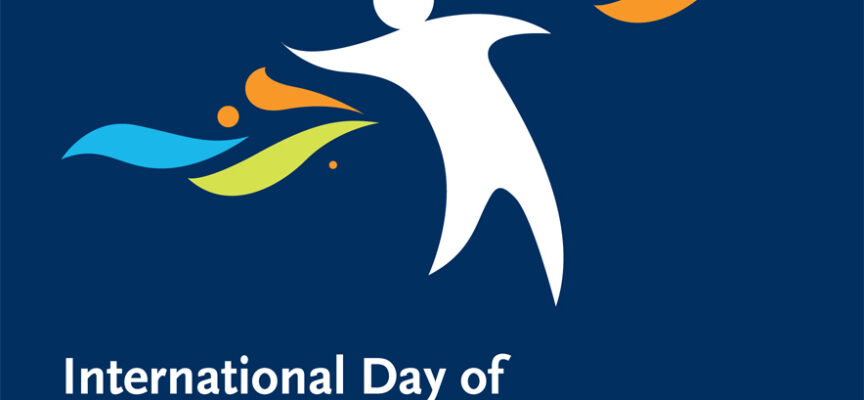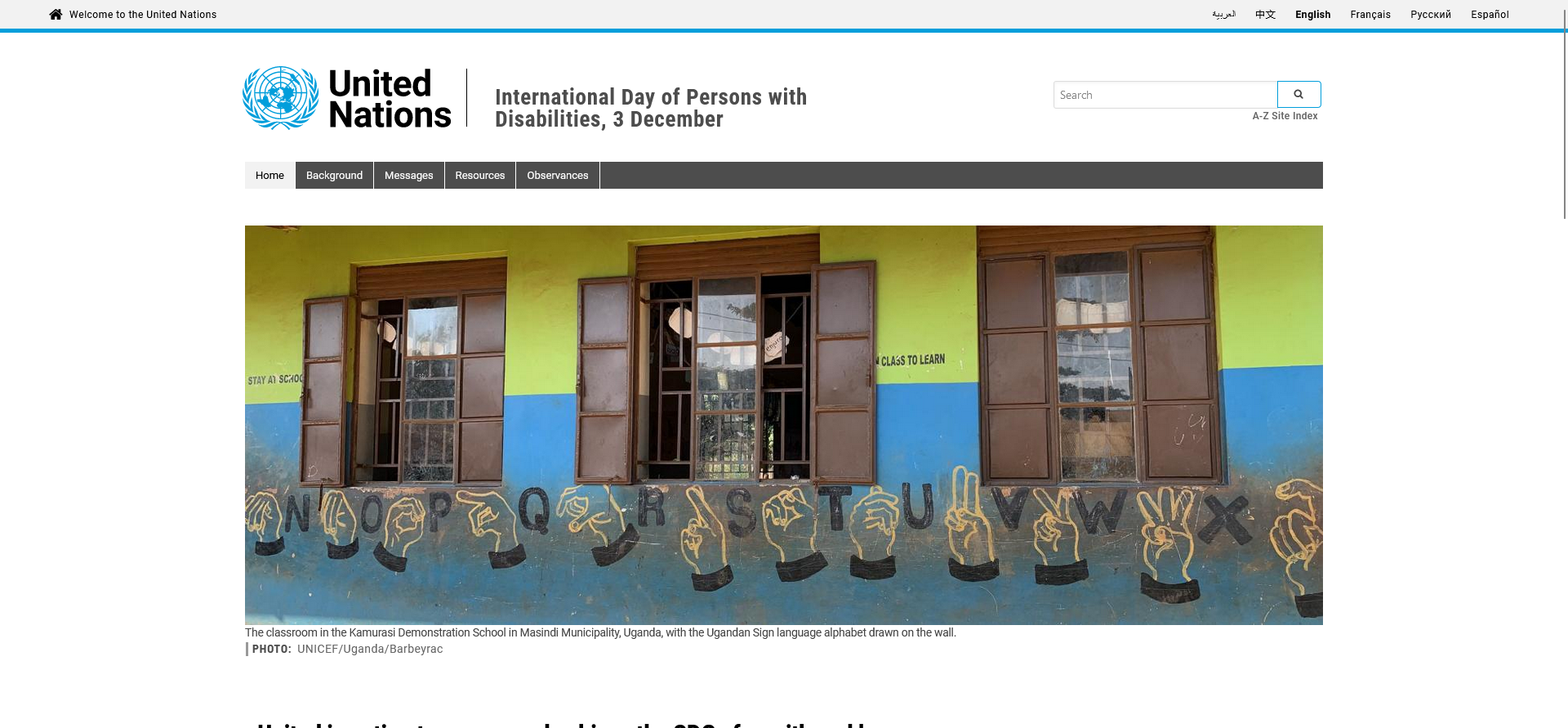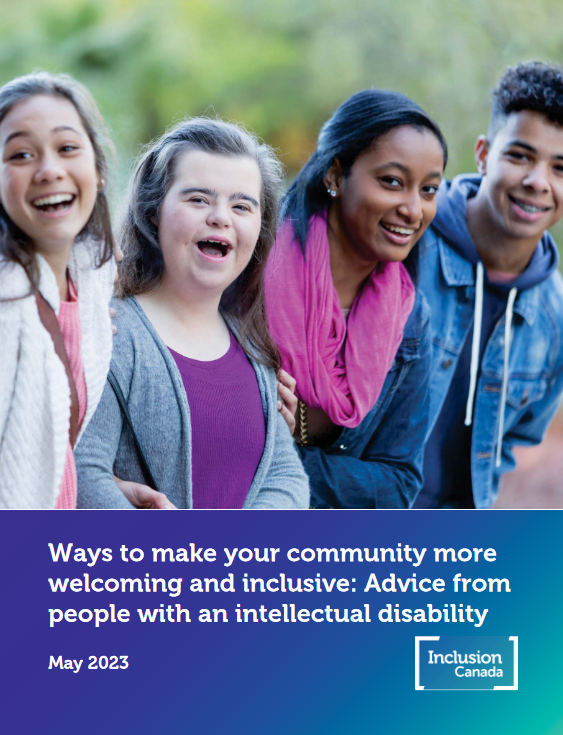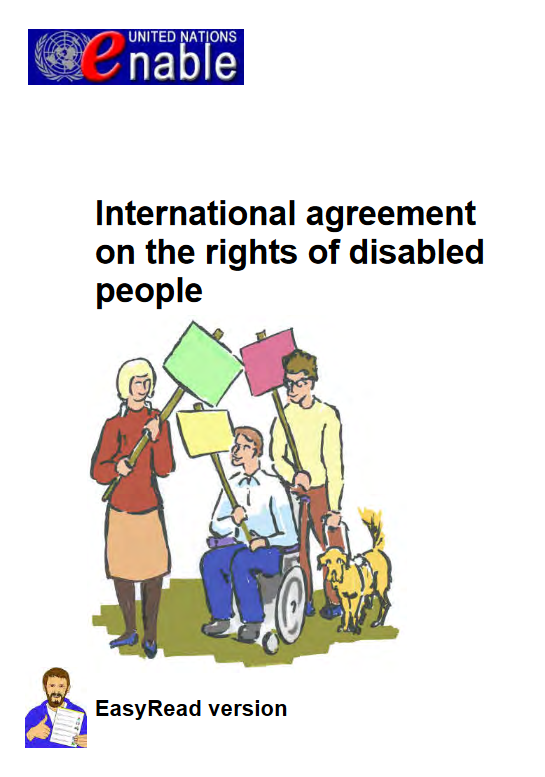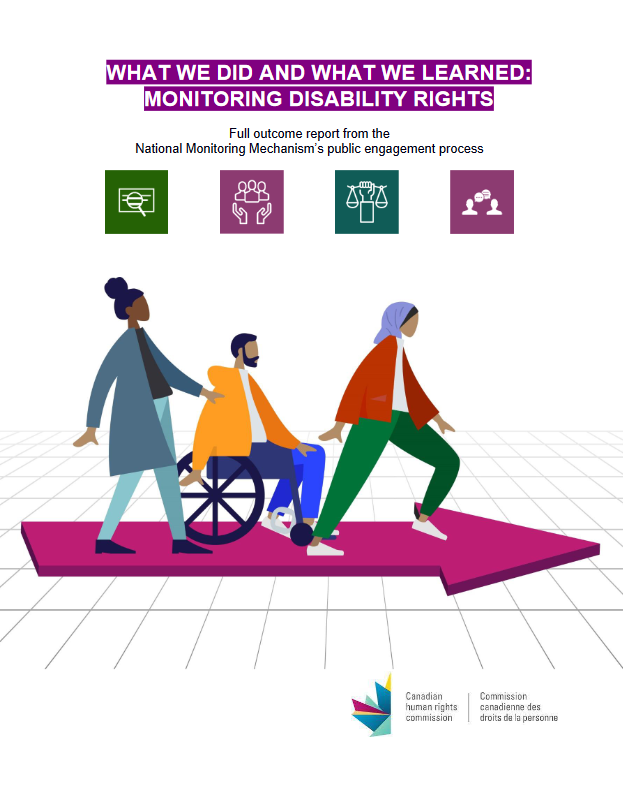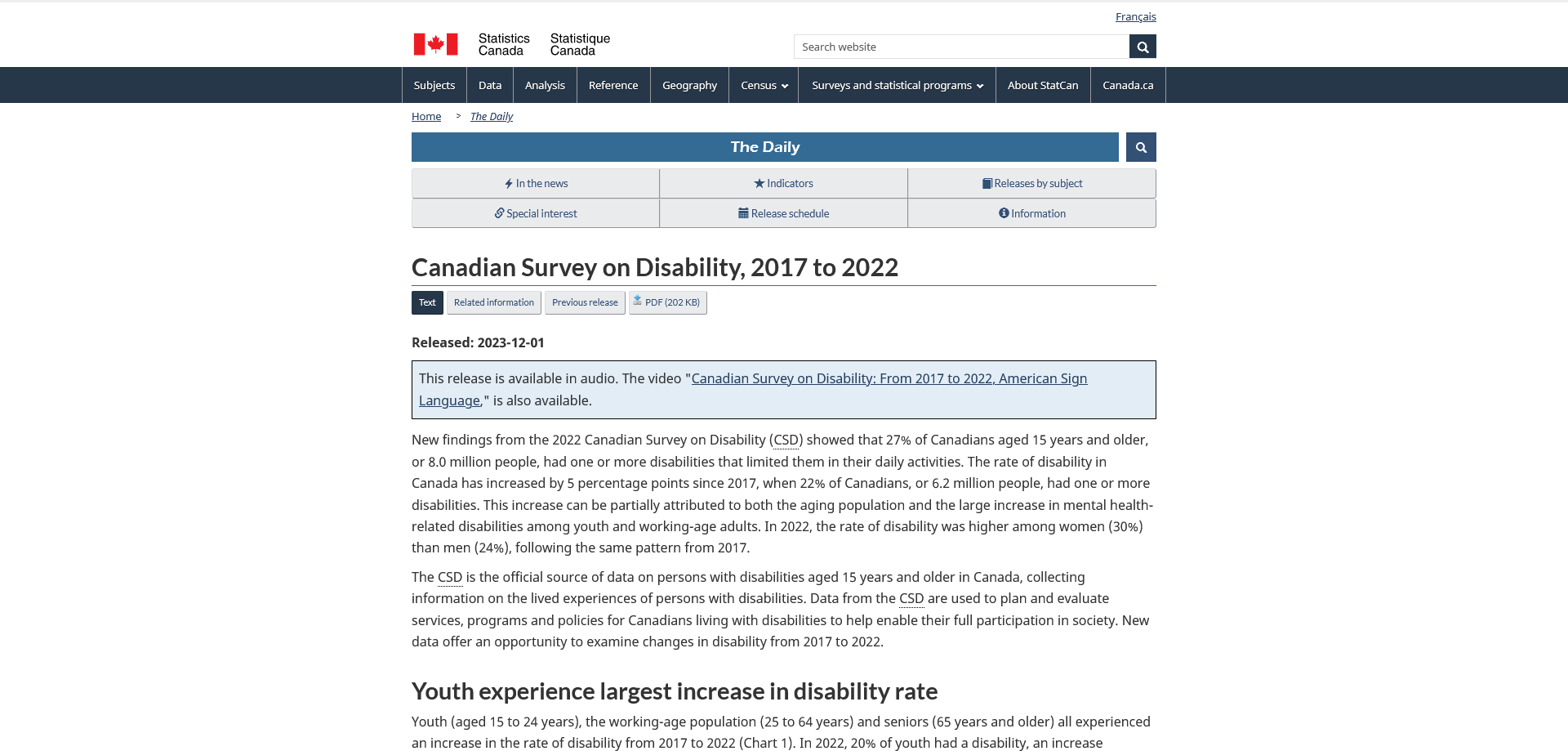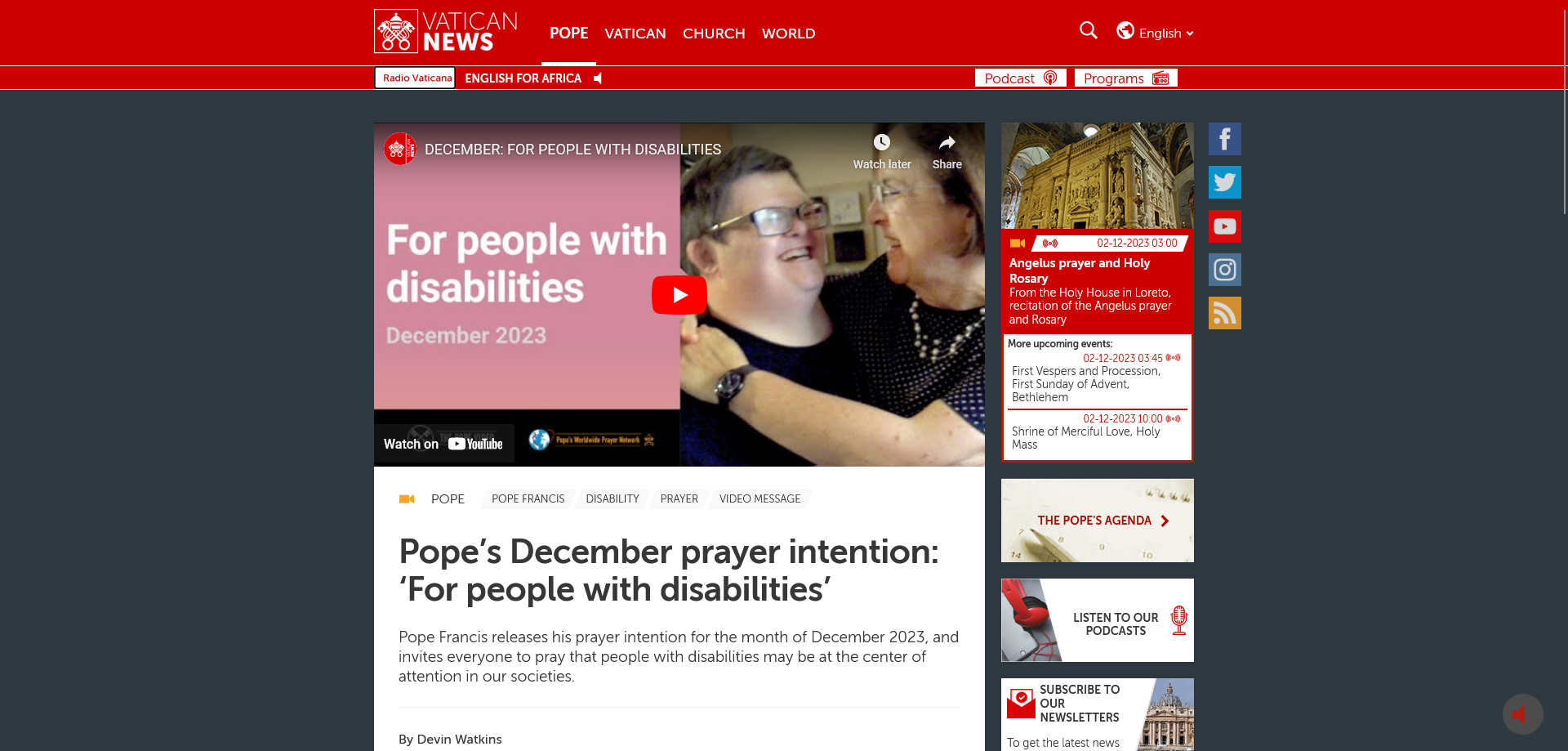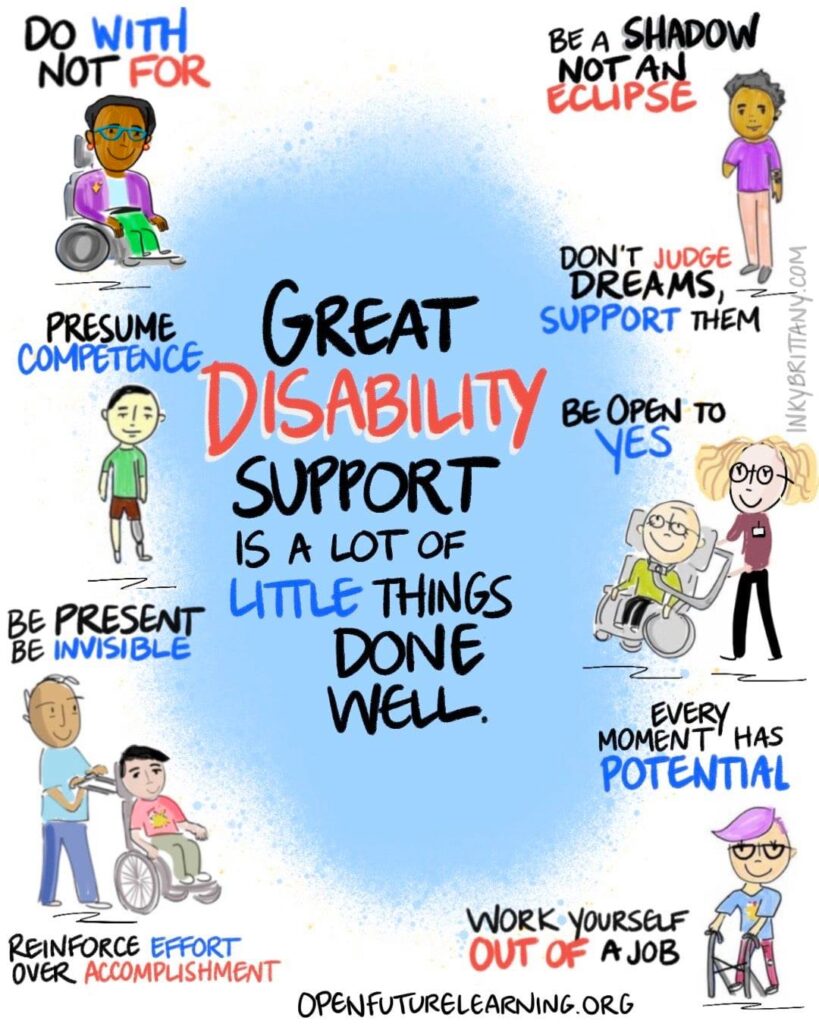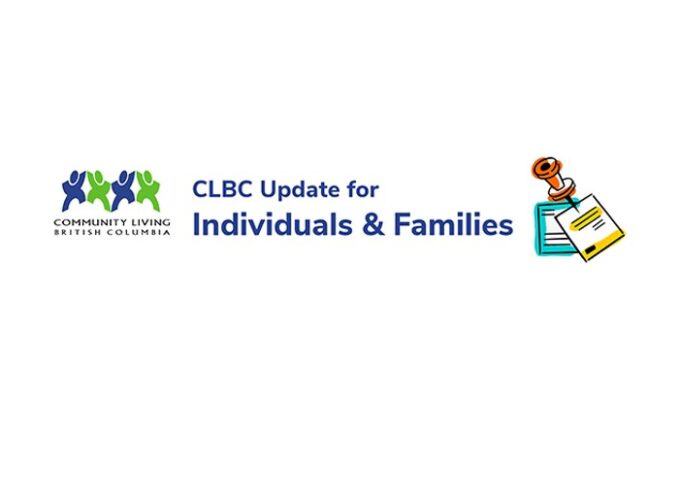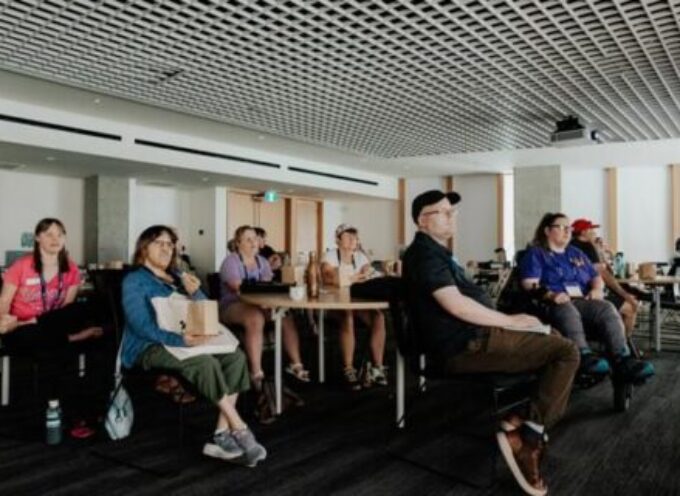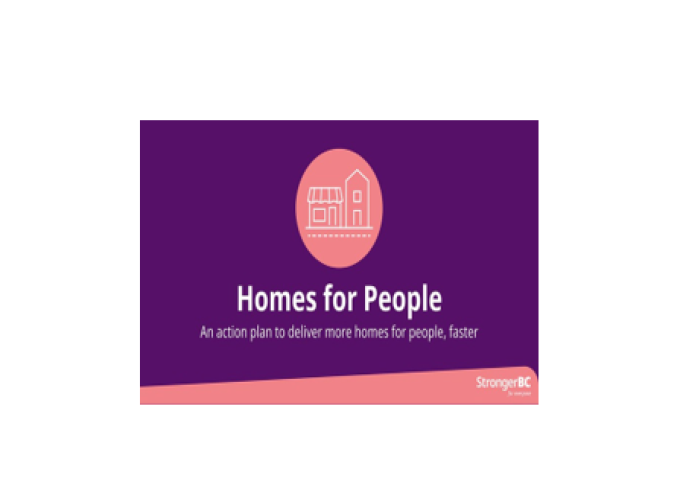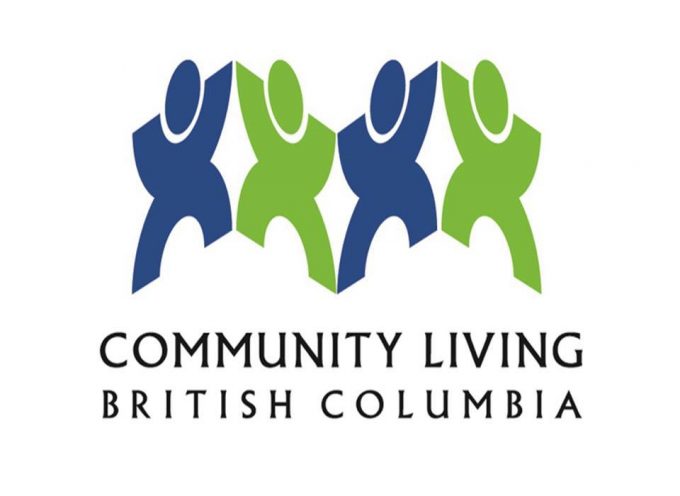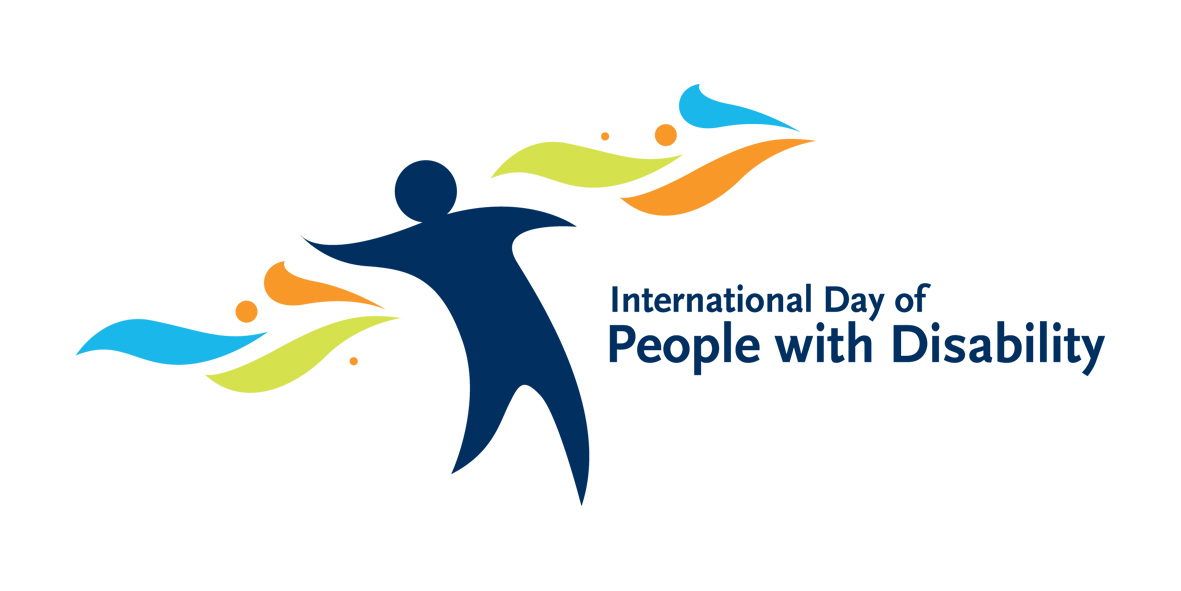
Selfadvocatenet.com is in Support of International Day of Persons with Disabilities 2023
Selfadvocatenet highlight why this day is important for pwd recognized disabilities contributions their voices heard and day that every pwd can be onered respected and we need stand up to ablelism society when necessary every level we need have ability to live inclusive and cared for this day we stand up for our right freedoms inclusion in our society
To start what is theme this year The theme of the 2023 International Day of Persons with Disabilities (IDPD) is: “United in action to rescue and achieve the SDGs for, with and by persons with disabilities“.
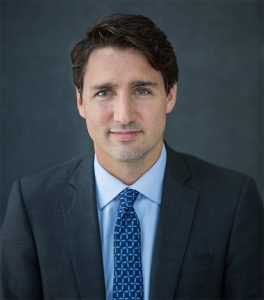
“Building a fair, inclusive, and accessible world starts with action right here at home. Today, on the International Day of Persons with Disabilities, we recommit ourselves to working toward a future free of barriers, where all persons with disabilities are treated with dignity and respect, and are provided with equal opportunities to thrive.
“One in four Canadians have a disability – many with disabilities that are not visible. Canadians of working age with a disability are nearly twice as likely to be living on a low income. That is unacceptable – and that is why, last year, we launched the historic Disability Inclusion Action Plan, a blueprint for change to make Canada more inclusive and to improve the lives of persons with disabilities. With concrete programs, policies, and critical investments, the plan will help those with disabilities get financial security, find and keep a good job, and be able to fully participate in their communities.
“We are working on the Canada Disability Benefit, which will provide direct support to low-income, working-age Canadians with disabilities. Disabilities are diverse in nature – there is no one-size-fits-all solution, and that is why Canadians can share their unique perspectives using the Canada Disability Benefit Regulations Online Engagement Tool. We also created the Disability Inclusion Business Council, to prioritize accessible and inclusive workplaces and to ensure that employees with disabilities can fully participate on the job. We will continue to work in partnership with disability communities, provinces and territories, and organizations across Canada to make Canada more accessible and to ensure that no one is left behind.
“This idea – of leaving no one behind – is also at the heart of Canada’s role in promoting a more just and inclusive world. Disability rights are human rights, and Canada will continue to take ambitious action to champion disability rights at international forums, including the United Nations and the World Health Organization.
“We are committed to ensuring persons with disabilities have equal opportunities to fully participate, succeed, and get ahead. Today, and every day, I encourage Canadians to learn more about how they can promote inclusion and equality in their own communities, and across the country. Let’s continue working together to make our country better and more inclusive for everyone.”
This is on Justin Trudeau website go to the link here
Transcript
The Sustainable Development Goals — or SDGs — chart a bold course towards a future where no-one is left behind.
Yet, with the 2030 ‘finish line’ now on the horizon, just 15% of SDG targets are on track in the wake of multiple crises.
The 1.3 billion persons with disabilities worldwide are amongst those who are most negatively affected by this limited progress.
That includes continued exclusion from public goods and services and high levels of discrimination.
To deliver the SDGs for, with, and by persons with disabilities, disability inclusion must be embedded across every dimension of development.
Consider UNDP’s work alongside the United Nations Partnership on the Rights of Persons with Disabilities — or UNPRPD — to ensure that everyone can have their say in climate action frameworks in countries such as Jordan, Somalia, and South Africa. Or look to Ukraine, where UNDP is supporting the socio-economic integration of persons with disabilities caused by the war.
Producing better data on disability inclusion is vital to deliver the greatest impact.
To this end, UNDP is working alongside organisations of persons with disabilities to gather data about challenges and opportunities in the realisation of their human rights.
Six such analyses have just been launched with support from the UNPRPD, which can inform the design of new inclusion policies.
The brighter tomorrow envisioned in the SDGs is one that must be co-created.
As we mark the 75th Anniversary of the Universal Declaration of Human Rights, that means heeding the call of the disability movement:
‘Nothing about us, without us.’
PRESS RELEASE: Funding helps remove barriers for people with disabilities: Accessibility Projects Grants Recipients for 2023/2024

-For Immediate Release–
Vancouver, BC – December 4th, 2023
Today, Disability Alliance BC (DABC) has announced the recipients of the 2023/2024 Accessibility Projects Grants, which will support better access to cultural, recreational, safety, educational and community participation opportunities for people with disabilities across the province. This year, the Provincial Government provided $450,000 to be distributed by DABC to non-profits throughout British Columbia. Since 2018, DABC has distributed approximately $2.75 million to over 80 not-for-profit organizations through this partnership with the Province.
“It’s so heartening to see the number of strong applications we receive – it shows how important and much needed this funding is, as well as how many people want to invest their time, energy and expertise into improving accessibility for people with disabilities,” said Danielle Gauld, who works as the coordinator of the grants with DABC.
Organizations were invited to apply for up to $40,000 for community engagement projects that will support lasting change for the more than 900,000 people (24.7% of the population over age 15)1 in BC living with disabilities. A few examples of projects funded in previous years include:
- Kinsight’s “Real Talk: Connecting Queer Communities” project, which increased community participation opportunities and decreased stigma for 2SLGBTQIA+ adults with cognitive disabilities. Stated one of their group members, “There’s not many programs for us out there, for disability and for LGBTQ.”
- Yarrow Intergenerational Society for Justice’s “Intergenerational Chinatown Disability Advocacy through Arts” project, of which Sunny Chiu, Coordinator of the project, stated: “We created spaces in Chinatown and Downtown Eastside where disabled youth and Chinese seniors could connect, and attend creative and culturally relevant, physically-and language-accessible events. I think we were able to start some very necessary (and trilingual!) conversations about how language and physical accessibility operate in tandem, and what accessibility means to our participants. I really hope to continue these conversations even after this project is finished!”
The Province observes December 3rd as the Day for Persons with Disabilities, to coincide with the United Nations’ International Day of People with Disability. “We want everyone to have the opportunity to enjoy full and equitable participation in their communities,” said Susie Chant, BC’s Parliamentary Secretary for Accessibility. “As we celebrate the Day for Persons with Disabilities, I am especially grateful for our work with trusted partners like Disability Alliance BC to remove and prevent barriers for people with disabilities.”
DABC is proud to work with the BC government to remove barriers and celebrate the contributions of people with disabilities to their communities.The Accessibility Projects Grants are an important step in this direction.
Media Contacts:
Danielle Gauld
Accessibility Projects Grants Coordinator
ap@disabilityalliancebc.org
Helaine Boyd
Executive Director
helaine@disabilityalliancebc.org
Learn More:
To learn more about Disability Alliance BC: https://disabilityalliancebc.org/
To get up to date about Government’s work on accessibility: https://www2.gov.bc.ca/gov/content/governments/about-the-bc-government/accessibility/news
To give feedback on barriers people with disabilities face when accessing government services: https://www2.gov.bc.ca/gov/content/governments/about-the-bc-government/accessibility/feedback
To read the Accessible B.C. Act 2022/2023 Progress Report: Accessible BC Act: 2022/2023 – Progress Report (gov.bc.ca)
Backgrounders:
DABC invited eligible organizations to apply for funding in August, and the list of recipients was announced today:
- 221A Artist Run Centre Society – $40,000 for community-led creative gatherings, cultural workshops, and food-sharing initiatives at an Indigenous garden located in Vancouver’s Chinatown and Downtown Eastside.
- BC Association for Advancing Communications (BCAAC)– $39,902 for delivery ofvirtual and in-person inclusion workshops for people and children with speech and language disabilities and free online resources to support people across BC.
- Kickstart Disability Arts and Culture – $40,000 for an in-person residency in Vancouver for artists practicing in the field of disability arts and culture that gives them an opportunity to learn, have access to studio time, and build community with other practicing disabled artists.
- Recreation Adapted Society (RAD) – $39,656 for the launch of the Langford Lake GearBox, a container with adaptive recreation devices for outdoor activities for people with mobility disabilities, helping them maintain healthy, active, independent lifestyles.
- Stanley Park Ecology Society – $40,000 for programs with experiential learning, hands-on education, and environmental skill-building opportunities for people with disabilities to engage with and enjoy the natural world at Stanley Park in Vancouver.
- Neil Squire Society– $39,628 for events in Greater Vancouver and beyond, to foster accessibility and inclusivity in the world of gaming with customizable assistive technology solutions.
- Smithers Community Services Association – $40,000 for a project that will assist children (aged 6-12) with learning disabilities with improving their reading and writing skills and youth (Grades 7-12) who have fallen behind in school academics due to their learning disabilities in Smithers, Telkwa, Houston and Witset.
- Victoria Immigrant and Refugee Centre Society – $40,000 to support newcomers with disabilities in Greater Victoria to access education, allowing them to pursue new learning opportunities and achieve their educational and career goals.
- Worker Solidarity Network Society (WSN) -$40,000 for a project that will support low-income workers living with disabilities to build capacity for safety and wellbeing in extreme weather events in Fraser Valley, Metro Vancouver and Okanagan through educational materials, ASL-interpreted video content, and the implementation of an accessible educational program.
- Kettle Friendship Society – $40,000 for group art therapy, creative writing, choir practice, art scholarships and public performances/showcases to help people living with mental health challenges in Vancouver regain visibility and rediscover their voices in a safe space.
- Kamloops and District Society for People In Motion– $40,000 for an initiative to examine the role that accessible and inclusive transportation choices make in addressing issues of social and economic inclusion among people with disabilities living in Kamloops, Te’kumlups First Nation and the broader Thompson-Nicola Region.
- Northern Adapted Sports – $13,500 to expand school awareness programming and professional development for bringing adapted sports to children and youth across Northern BC.
To learn more and download the Call for Proposals (CFP) and application forms please visit: Accessibility Projects Grants | DABC (disabilityalliancebc.org).
1https://www150.statcan.gc.ca/t1/tbl1/en/tv.action?pid=1310037401&pickMembers%5B0%5D=1.13
This is on website Disability Alliance BC go to the link here
CLBC releases progress report for International Day of Persons with Disabilities
Dec 3rd 2023 posted

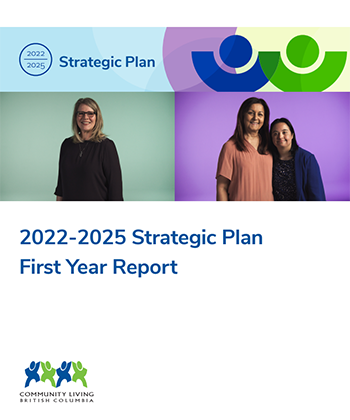 December 3 is International Day of Persons with Disabilities (IDPD) – an annual United Nations day that centers disability-related inclusion and aims to “mobilize support for the dignity, rights and well-being of persons with disabilities.” As Community Living BC recognizes this day, we reflect on the philosophy of “nothing about us without us.” Practically put, this means that in our daily work CLBC staff strive to uplift and embed the perspectives of the individuals we serve.
December 3 is International Day of Persons with Disabilities (IDPD) – an annual United Nations day that centers disability-related inclusion and aims to “mobilize support for the dignity, rights and well-being of persons with disabilities.” As Community Living BC recognizes this day, we reflect on the philosophy of “nothing about us without us.” Practically put, this means that in our daily work CLBC staff strive to uplift and embed the perspectives of the individuals we serve.
To help honour this day, CLBC is releasing its first report documenting progress in our 2022-2025 Strategic Plan goals and the vision for “communities of belonging, and lives of connection.”
Our Strategic Plan is one of the ways we seek to embed the perspectives of the individuals we serve into our work. The plan contains goals and strategies that were developed based on feedback from more than 500 people – individuals, service providers, community members, and other partners.
First Year Sample Achievements – 2022-2025 Strategic Plan
Goal One – We have trusting relationships with the people we serve
- We heard input from those we serve through open board meetings, 13 community councils, and our projects to improve services.
- We published an Accessibility Plan in August of 2023.
- We improved the way we talk about our services, based on feedback from individuals, families, support networks, service providers and other key partners.
Goal Two – Our actions align with the Rights of Indigenous Peoples
- A 2023 amendment to the Community Living Authority Act now requires CLBC to have an Indigenous Advisory Committee, officially solidifying the presence of Indigenous individuals in decision making processes.
- CLBC launched a new Cultural Safety Policy in Spring 2023, with six Guiding Principles to lead our organization, partners, and service providers.
- CLBC partnered with the BC Association of Aboriginal Friendships Centres (BCAAFC) to develop a strategy to ensure cultural safety within Home Sharing across the province.
Goal Three – We invest in and value our sector partners
- Through CLBC funding, Self-Advocates of the Rockies (SAOR), offered paid employment opportunities for self-advocates to plan events for peers in their community (Cranbrook, BC).
- CLBC funded a new project, “Families Supporting REA-L,” which aims to create a future where people with developmental disabilities “have lives that are fulfilled, self-directed and result in a good life.”
- The Home Sharing Support Society was launched, offering central resources for CLBC’s home sharing providers.
Goal Four – Our actions advance inclusion and accessibility in community
- CLBC was part of a new Kamloops housing project Kikékyelc: A Place of Belonging. This project is in collaboration with BC Housing and is operated by Lii Michif Otipemisiwak Family and Community Services.
- In May 2023, Community Health Advisory Team (CHAT) and the Ministry of Health co-hosted the Heath Leadership Collaborative, which included individuals with lived experience, as well as representatives from various organizations and related Ministries, and focused on the topics of health systems, accessibility, aging, primary care and mental health.
Foundation – We are resilient and act in alignment with the vision
- CLBC expanded Learning, Inclusion, Friendship and Employment (L.I.F.E.) services, with 12 new contracts, for a total of 17 service providers now offering this service.
- CLBC was named one of BC’s Top Employers for the second year in a row.
To request this report in another format, please email CLBCInfo@gov.bc.ca.
This is on CLBC website go to the link here
INCLUSION BC STORY ON INSTITUTIONS
The End of an Era
1878 – 1996
In the early afternoon of a rainy October day, the last two remaining residents of Woodlands institution moved to their new home in Vancouver’s Lower Mainland.
It was a quiet departure. No speeches. No television cameras. No crowds of supporters to wish them a fond farewell. But despite the lack of fanfare associated with their final moments in an institution that had been “home” for more than 25 years, it was an event that marked the end of an era in B.C.’s history.
The institutionalization of people with developmental disabilities in B.C. began at Woodlands more than 100 years ago. Together with Tranquille in Kamloops (which opened in 1959) and Glendale in Victoria (which opened in 1971) Woodlands became the focus of a major initiative in the early 1980’s to end the institutionalization of people with disabilities in B.C.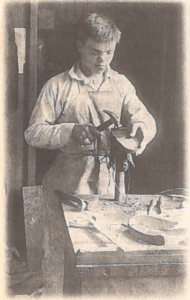
When downsizing began in 1981, approximately 1,600 individuals were living in the three institutions. Tranquille was the first to close its doors in 1985. Glendale followed early this spring. And with the closure of Woodlands in October, B.C. became the first province in Canada to make the full transition to community living.
“This is a truly historic occasion,” said Penny Priddy, Minister for Children and Families.
“Community Living helps to improve the quality of life of each individual,” she said, adding that “the benefits don’t stop with individuals. Diversity strengthens our communities.”
“The future success of community living goes beyond closing the institutions,”
Much of the success of the downsizing process has been attributed to the involvement of families in the planning and placement of their family members. In addition, attention was increasingly paid, throughout the process, to building a variety of crucial partnerships between ministry staff, service providers, community advocates, and institutional staff. The result was an initiative that sought not only to close the institutions, but to ensure the supports needed by individuals would be made available to them in the community. BCACL, which played an ongoing role in the downsizing process, will continue to monitor and advocate for appropriate services where required.
“The future success of community living goes beyond closing the institutions,” said BCACL President Anita Dadson. “Our job now is to make sure communities continue to have the resources they need to welcome and support people with developmental disabilities in their homes and in their neighbourhoods.”
“Say goodbye to Woodlands for me”
By Judy Carter-Smith
“Say Goodbye to Woodlands for me” were the words my mother said as I left her home to go to Woodlands on the day the last two people left. As I drove there, I thought of the many times my family and I had taken the same route to visit my sister or to pick her up to come home for the weekend – which we did every weekend for so many years.
Barbara, even through she was in Woodlands, was very much a part of our family and community life. We did grow up together thanks to the courage, stamina, and commitment of my parents and grandparents. There was never any question that as a family, we did whatever it took to support and advocate for Barbara. She has been living and working in the community for over 20 years now, and in a sense was one of the pioneers in the long journey which brought us to the day of closure.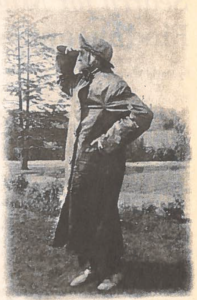
So for me, this day held many personal memories as well as feelings related to my role at BCACL. I did not see the last two people leave. But as I looked around the deserted grounds and the empty buildings, I had a mixture of feelings. I felt a profound sense of history, of feeling close to the many people who had fought for this day. I thought about those families, like ours, for whom Woodlands was the only alternative at the time. I thought about how babies were taken from parents, who were told it was better if they never saw their children again, I thought about the dedication of some of the Woodlands staff, who were committed to doing their best at the time, and who formed lifelong relationships with individuals. I thought about some of the anxieties and fears we experienced, and I’m sure Barbara experienced, when we were fighting an inflexible bureaucracy and punitive attitudes.
I thought about all those individuals who are now in community, their journeys, and where it would take them. I thought of the challenges our community living movement will face in the future – to ensure people are of community not just in it, and to ensure institutions remain a part of our yesterday, and not part of our tomorrow.
Although our knowledge and experience has greatly increased since those early days when institutions were seen as the only alternative, attitudes and feelings that existed then are still with us. People are still afraid of people they perceive as different from themselves, resources are scarce, governments and ministries change.
 We have said goodbye to Woodlands and experienced our first day of an institution-free B.C. The strengths which brought us to this moment in time need now to be applied to ensuring that individuals are accepted as part of their community. As a self advocate recently put it, that “we have buddies”.
We have said goodbye to Woodlands and experienced our first day of an institution-free B.C. The strengths which brought us to this moment in time need now to be applied to ensuring that individuals are accepted as part of their community. As a self advocate recently put it, that “we have buddies”.
There is a new generation of individuals and families coming forward now who have never experienced institutions: children who have gone to regular schools and will have different expectations and responsibilities in tomorrow’s society. It is our challenge now to facilitate the bridge between generations and ensure the next generation is supported in achieving their goals by building on the heritage of the pioneers who came before.
Say goodbye to Woodlands and say hello to a different world. We will, like others before us, change the face of tomorrow today.
Take a moment to join us in reading this article from 1996 we’ve digitized about the end of institutions in our province, the impact it had made, and what it meant to people, families, and communities.
See the original newspaper article here
This is on Inclusion BC website go to the link here
Inclusion Canada
Ways to make your community more welcoming and inclusive: Advice from people with an intellectual disability
May 2023 Document
International agreement on the rights of disabled people
Easy Read version
What we did and what we learned: Monitoring Disability Rights
This report provides a plain language summary of what people shared during the public engagement process. This report has been translated and tested by People First of Canada’s plain language team. Self advocates from across the country provided their input, expertise, and experience to help make this report more accessible through plain language. It includes Sign language videos and closed captioning. It can also be read with a screen reader.
This document on the Canadian Human Rights Commission website go to the link here
Canadian Survey on Disability, 2017 to 2022
Pope’s December prayer intention: ‘For people with disabilities’
TRANSCRIPT
Let us pray that people with disabilities may be at the center of attention in society, and that institutions offer inclusion programs that enhance their active participation.
Pope Francis – December 2023
People with disabilities are among the most fragile among us.
Some of them suffer rejection, rooted in either ignorance or prejudice, which then marginalizes them.
Civil institutions need to support their projects through access to education, employment, and places where they can express their creativity.
Programs and initiatives are needed that promote their inclusion.
Above all else, big hearts are needed who want to accompany.
It means changing our mentality a little and opening ourselves to the abilities and talents of these people who are differently abled, both in society as well as in the life of the Church.
And so, creating a completely accessible parish does not only mean eliminating physical barriers. It also assumes that we stop talking about “them” and start talking about “us.”
Let us pray that people with disabilities may be at the center of attention in society, and that institutions offer inclusion programs that enhance their active participation.
Ableism and Language
This video explains what ableism is. The video explains that the assumptions held regarding able-bodied superiority over persons with disabilities are learned beliefs that are continually reinforced through language. This video explains the ableism that can exist in everyday language and how they impact people with disabilities.
TO REFLECT ON
- What terms have you used that would be considered ableist or enforcing ableism?
- What did you learn about ableism?
What is ableism? from United Nations Human Rights on Vimeo.
50 moments: The International Day of Persons with Disabilities
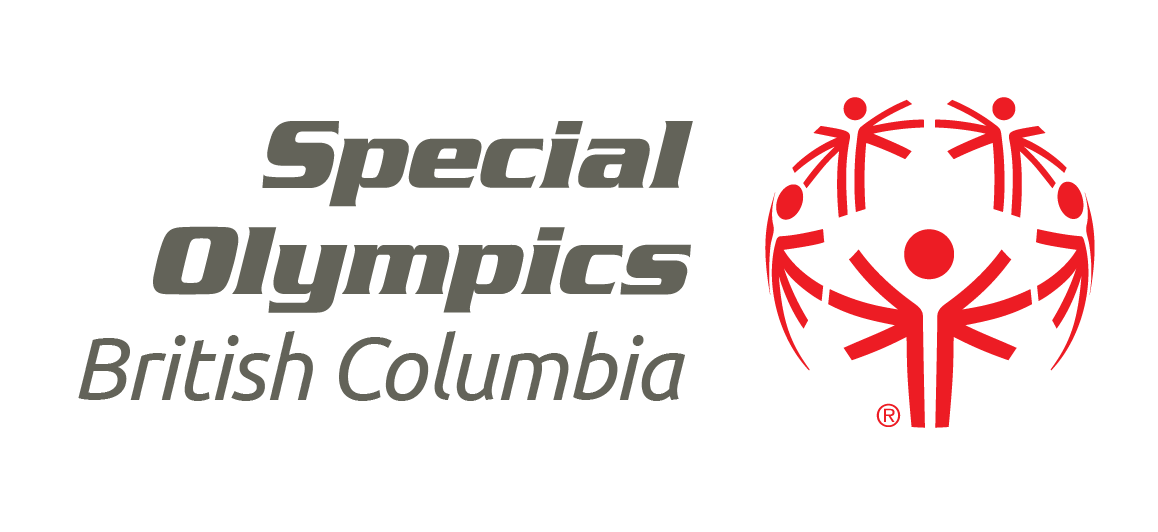
December 3 is recognized as the International Day of Persons with Disabilities in countries throughout the world. It provides a chance to celebrate people with disabilities and reaffirm global efforts to improve their lives and rights.
This important day was brought into being by the United Nations General Assembly on October 14, 1992, following the International Conference of Ministers Responsible for the Status of Persons with Disabilities, which was hosted by the Government of Canada in Montreal on October 8 and 9 of that year.
The conference was the culmination of the United Nations’ Decade of Disabled Persons, which ran from 1983 to 1992. During this time, Member States were encouraged to adopt the World Programme of Action Concerning Disabled Persons, which included a focus on providing equal opportunities for people with disabilities.
The Decade saw many significant strides towards equality, inclusion, and acceptance. This included five world conferences held during the 1990s which emphasized the need for a “society for all,” advocating the participation of all citizens, including persons with disabilities, in every sphere of society. The Decade also saw the adoption of twenty-five principles that defined the fundamental freedoms and basic rights of persons with intellectual disabilities in 1991.
Establishing an International Day of Persons with Disabilities in 1992 ensured that the conversation around inclusion and acceptance of people with disabilities would continue long into the future. The annual observance aims to promote the rights and well-being of persons with disabilities in all aspects of society and development, and to increase awareness of the situation of persons with disabilities in every aspect of political, social, economic and cultural life.
Since 1998, the International Day of Persons with Disabilities has had a specific focus, and this year’s theme is “Empowering persons with disabilities and ensuring inclusiveness and equality.” It emphasizes the empowerment of persons with disabilities for an inclusive, equitable, and sustainable development as part of the 2030 Agenda for Sustainable Development, which pledges to “leave no one behind.”
Learn more about 2018’s International Day of Persons with Disabilities and the events taking place at the UN Headquarters in New York, which will include a musical performance by Special Olympics athletes from Korea.
This is on Special Olympics BC website go to link here


